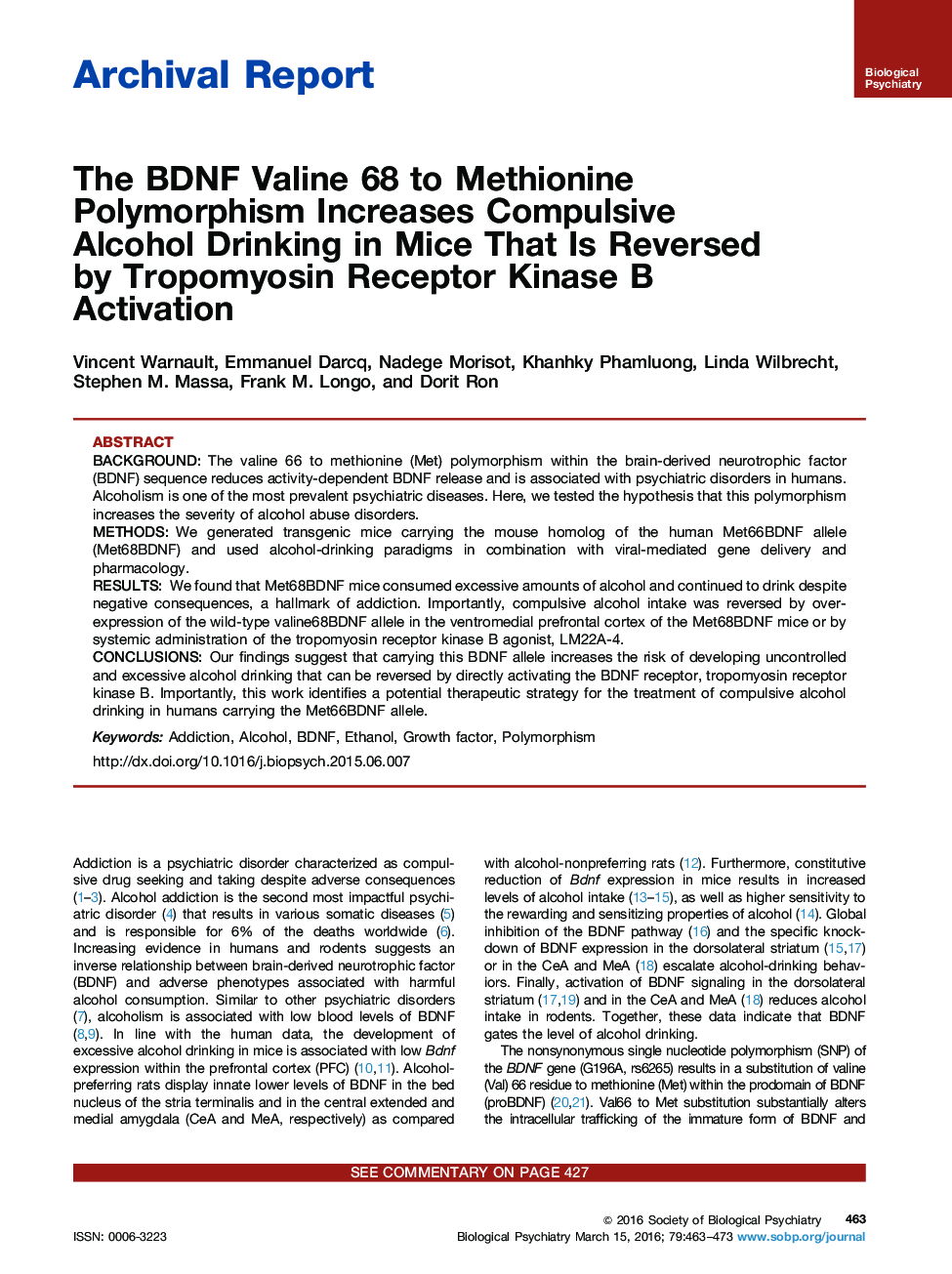| کد مقاله | کد نشریه | سال انتشار | مقاله انگلیسی | نسخه تمام متن |
|---|---|---|---|---|
| 6226427 | 1276381 | 2016 | 11 صفحه PDF | دانلود رایگان |

BackgroundThe valine 66 to methionine (Met) polymorphism within the brain-derived neurotrophic factor (BDNF) sequence reduces activity-dependent BDNF release and is associated with psychiatric disorders in humans. Alcoholism is one of the most prevalent psychiatric diseases. Here, we tested the hypothesis that this polymorphism increases the severity of alcohol abuse disorders.MethodsWe generated transgenic mice carrying the mouse homolog of the human Met66BDNF allele (Met68BDNF) and used alcohol-drinking paradigms in combination with viral-mediated gene delivery and pharmacology.ResultsWe found that Met68BDNF mice consumed excessive amounts of alcohol and continued to drink despite negative consequences, a hallmark of addiction. Importantly, compulsive alcohol intake was reversed by overexpression of the wild-type valine68BDNF allele in the ventromedial prefrontal cortex of the Met68BDNF mice or by systemic administration of the tropomyosin receptor kinase B agonist, LM22A-4.ConclusionsOur findings suggest that carrying this BDNF allele increases the risk of developing uncontrolled and excessive alcohol drinking that can be reversed by directly activating the BDNF receptor, tropomyosin receptor kinase B. Importantly, this work identifies a potential therapeutic strategy for the treatment of compulsive alcohol drinking in humans carrying the Met66BDNF allele.
Journal: Biological Psychiatry - Volume 79, Issue 6, 15 March 2016, Pages 463-473